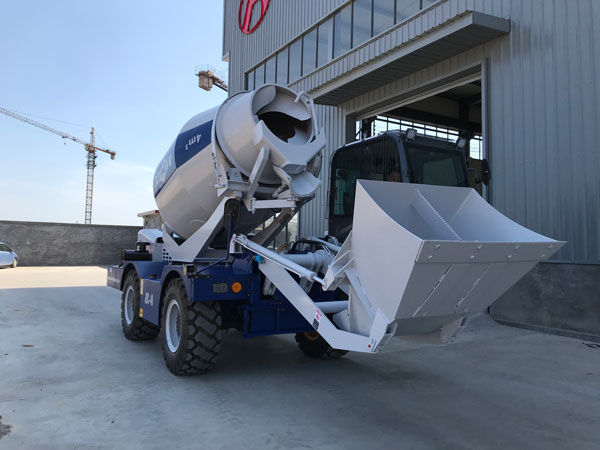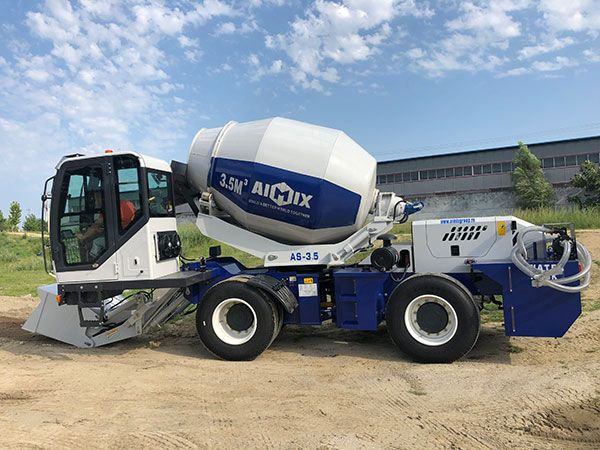Are There Limitations on Using a Hydraulic Concrete Mixer?
- aimixglobal2024
- 2024年12月24日
- 讀畢需時 3 分鐘
Hydraulic concrete mixers are widely used in the construction industry due to their efficiency and reliability. However, like any equipment, they come with certain limitations. Understanding these limitations helps users make informed decisions and optimize their use. This blog explores the various limitations of hydraulic concrete mixers and provides valuable insights for customers.

Capacity Limitations
One of the primary limitations of hydraulic concrete mixers is their capacity. These mixers come in different sizes, with varying capacities. The size of the mixer determines the amount of concrete it can produce in a single batch.
Small to Medium-Sized Projects
Hydraulic concrete mixers are ideal for small to medium-sized projects. They offer efficient mixing for projects that do not require large volumes of concrete. However, for large-scale projects, these mixers may not be sufficient.
Using hydraulic mixers for large projects may result in longer production times. This can affect project timelines and increase labor costs. For such projects, traditional batching plants or larger mixers may be more suitable.
Batch Size Limitations
The batch size of a hydraulic concrete mixer is limited by its drum capacity. This means that only a certain amount of concrete can be mixed at one time. For projects requiring continuous concrete supply, this limitation can pose challenges.
To address this, users can operate multiple mixers simultaneously. This ensures a steady supply of concrete, although it may require additional resources and coordination.
Mobility and Accessibility
Hydraulic concrete mixers from Aimix Group offer mobility, making them suitable for various job sites. However, there are limitations related to their mobility and accessibility.
Transport and Setup
Transporting and setting up hydraulic mixers requires careful planning. These mixers can be heavy and bulky, making transportation challenging. Additionally, setting up the mixer on-site requires adequate space and proper ground conditions.
For remote or hard-to-reach locations, transporting and setting up the mixer can be time-consuming and costly. Users should consider these factors when planning their projects.
Site Conditions
Site conditions significantly impact the use of hydraulic concrete mixers. Uneven or unstable ground can affect the stability and operation of the mixer. Proper site preparation is essential to ensure safe and efficient operation.
Additionally, extreme weather conditions, such as heavy rain or freezing temperatures, can impact the mixing process. Users should monitor weather conditions and take necessary precautions to protect the mixer and ensure consistent concrete quality.

Maintenance and Reliability
Regular maintenance is crucial for the optimal performance of hydraulic concrete mixers. However, maintenance requirements and potential breakdowns are limitations that users must consider.
Maintenance Requirements
Hydraulic concrete mixers require regular maintenance to ensure efficient operation. This includes checking hydraulic systems, cleaning the mixer drum, and inspecting mechanical components. Neglecting maintenance can lead to reduced efficiency and equipment failure.
Implementing a preventive maintenance schedule can help address potential issues before they become major problems. However, this requires time and resources, which users must factor into their project plans.
Potential Breakdowns
Like any machinery, hydraulic concrete mixers are prone to breakdowns. Hydraulic system failures, mechanical issues, or wear and tear can disrupt operations. These breakdowns can lead to delays and increased repair costs.
To minimize the risk of breakdowns, users should invest in high-quality mixers and ensure proper maintenance. Having a backup plan or spare parts readily available can also help mitigate the impact of unexpected breakdowns.
Operational Skill and Safety
Operating hydraulic concrete mixers requires skill and adherence to safety protocols. Lack of proper training or neglecting safety measures can pose risks.
Operator Skill
Proper training is essential for operators to use hydraulic concrete mixers effectively. Training should cover loading processes, mixing controls, and safety protocols. Skilled operators can ensure efficient mixing and high-quality concrete production.
Ongoing training helps operators stay updated with the latest practices and technology. This ensures that they can handle the equipment safely and efficiently.
Safety Precautions
Safety should always be a priority when using hydraulic concrete mixers. Operators must follow safety guidelines and protocols to prevent accidents and injuries.
Wearing appropriate personal protective equipment (PPE) and ensuring that the work area is free from hazards are essential safety measures. Regularly inspecting safety features, such as emergency stops and guards, ensures they function correctly.
Conclusion
While hydraulic concrete mixers offer many benefits, they also come with certain limitations. Understanding these limitations helps users make informed decisions and optimize their use. Capacity limitations, mobility challenges, maintenance requirements, and the need for skilled operators are some of the key considerations.
By addressing these limitations and implementing best practices, users can maximize the efficiency and reliability of hydraulic concrete mixers. Proper planning, regular maintenance, and adherence to safety protocols ensure high-quality concrete production and successful project outcomes.



留言